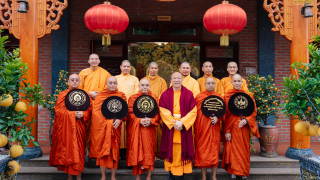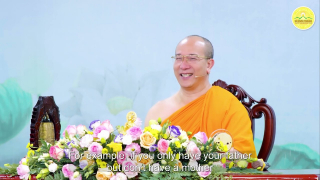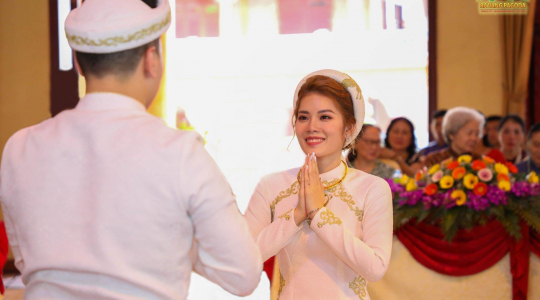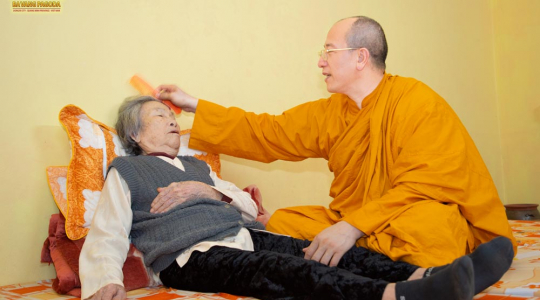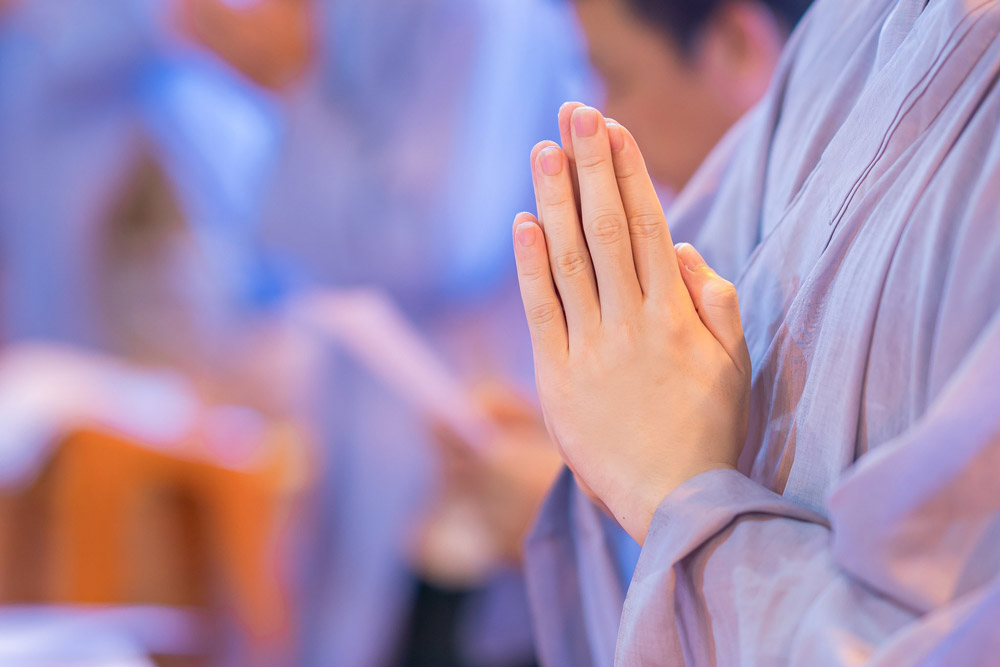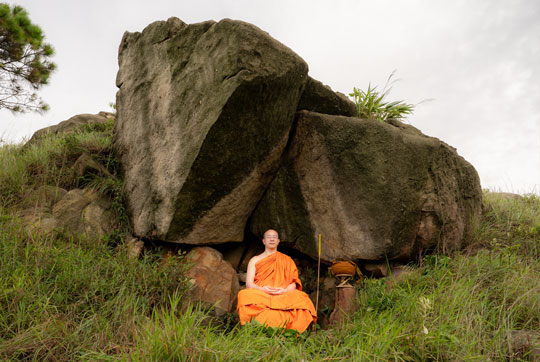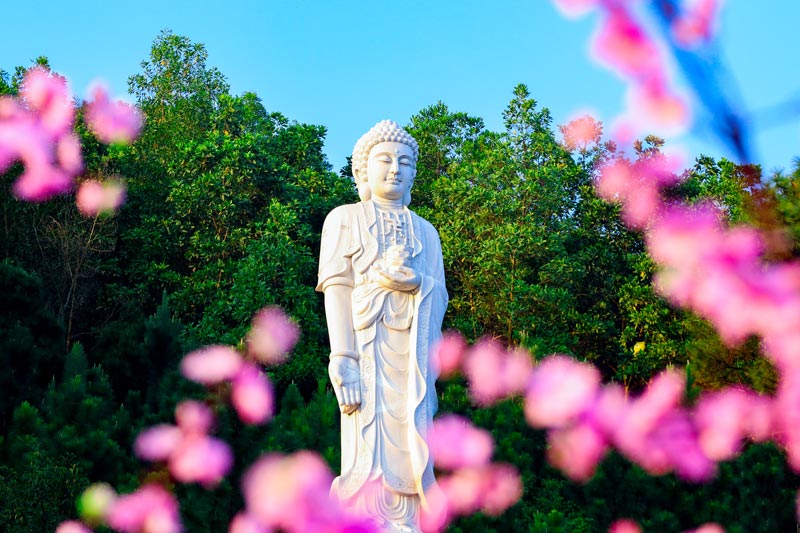Five strengths of a woman
Women have always been considered flowers of the world. They are the beautiful and gentle half of humankind. According to the Buddha, there are five strengths of a woman that will make her confident.
The Buddha talked about the five strengths of a woman
In the Connected Discourses, the teachings of the Buddha were recorded as follow: “Bhikkhus, there are five powers of a woman. What are the five? The power of beauty, the power of wealth, the power of relatives, the power of sons, the power of virtue. These are the five powers of a woman. When a woman possesses these five powers, she dwells confident at home."
(Bhikshu Bodhi, 2000, p.1289-1299)
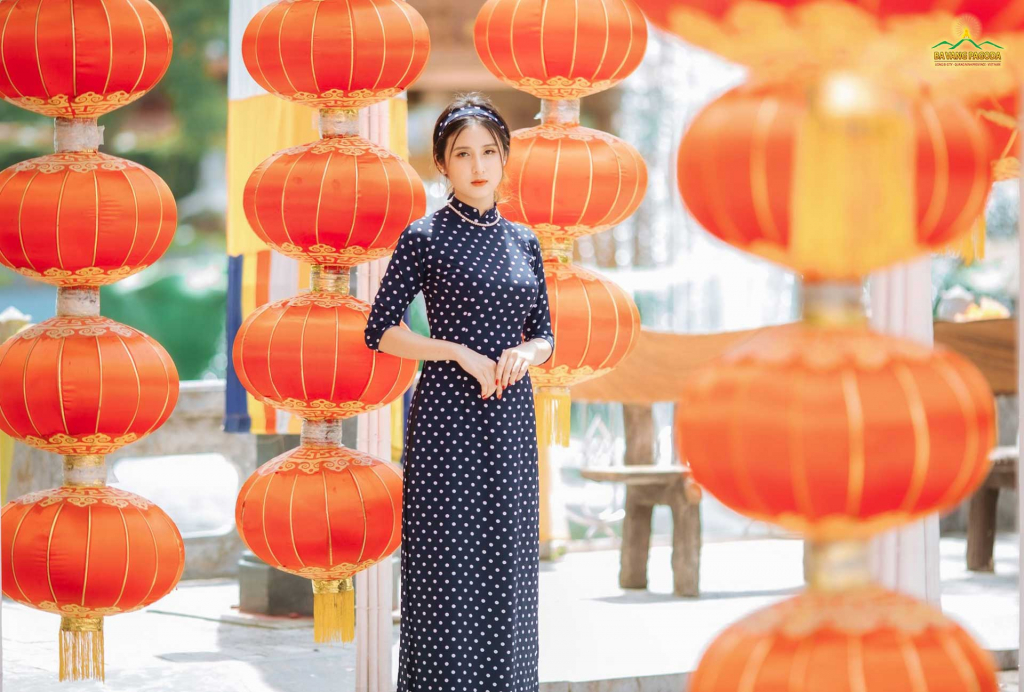 According to the Buddha, there are five strengths of a woman that will make her confident. (Photo: A lady in "áo dài"—a Vietnamese tradition costume—at Ba Vang Pagoda.)
According to the Buddha, there are five strengths of a woman that will make her confident. (Photo: A lady in "áo dài"—a Vietnamese tradition costume—at Ba Vang Pagoda.)#1 Beauty
The beauty of a woman can be a weapon. Thay Thich Truc Thai Minh once said:
“When we look back on many dynasties in history, a lot of kings became depraved because of the beauty of women. That is why a beautiful woman has power. Indeed, a beautiful woman possesses a kind of power because everyone loves beauty. Among many kinds of craftiness, there is one called feminine wiles. When all kinds of craftiness do not work, women use feminine wiles at last. So, beauty is the first strength of a woman.”
Besides, Thay Thich Truc Thai Minh also pointed out a reality that nowadays many women depend on plastic surgery to enhance their appearance or even to change their faces leading to many ironic situations in their life.
#2 Wealth
Thay Thich Truc Thai Minh explained:
“A wealthy woman also possesses power. Many young handsome men marry old women because of their property. Therefore, wealth is a kind of power of women. Of course, wealthy men have power and so do wealthy women. The power of wealth attracts a lot of people. That is why an old but rich woman can still marry a young handsome man.”
In fact, we can find couples of this kind, with a huge age difference between them, everywhere around the world.
#3 Relatives
A woman coming from a prestigious family also has strength. On this matter, Thay Thich Truc Thai Minh shared His point of view as follows:
“The third power is the power of relatives, that is, a woman was born in a family of high social status, for example in the royal family. Some women do not possess beauty but because they are daughters of powerful men, they can still marry handsome and skillful men. That is the power of having prestigious parents and relatives.”
#4 Sons
In Eastern countries, the idea of male chauvinism of feudalism is still deeply engraved in people's mind. Women who give birth to sons will be loved and taken good care of because it is believed that only sons can continue the tradition of the family. Thay Thich Truc Thai Minh asserted: “A woman who gives birth to sons for her husband and the family of her husband will have strength. The Buddha was right about this. No matter which age we live in, even if the woman is a princess or a queen, it is important to have sons. Having daughters will not give her many advantages .. So, giving birth to sons is the power of women.”
#5 Virtue
As Thay Thich Truc Thai Minh said:
“Another strength of a woman is the strength of virtue. A woman who truly possesses virtue and morality has power. If a woman lacks virtue and has a bad reputation, she will be less attractive.”
In the history of Buddhism, there is a well-known story about Queen Mallika, the queen of King Pasenadi. Queen Mallika was a woman of great virtue who observed the precepts and practiced the teachings of the Buddha. However, a concubine of King Pasenadi envied her and persuaded the king to kill her. King Pasenadi believed his concubine, so one day he tried to kill Queen Mallika by shooting an arrow at her. Strangely, the arrow suddenly flew back to the king. After all, King Pasenadi understood the great virtue of his queen and gave her love and respect.
The Buddha asserted the important role of women in society
Although every woman can have five great powers, they are often disrespected. There are many reasons for this, but the main cause is male chauvinism still existing in many parts of the world. Thay Thich Truc Thai Minh said that women are considered inferior in many religions. In some religions, women are not allowed to enter places of worship. They are thought to be unclean and therefore will badly affect the worship of gods. In some countries, women only stay at home to give birth and do chores. In some Islamic countries, women must cover their faces whenever they go out. They live dependently on their husbands who can see their faces.
In China, there is even a saying: “One has a child only when he has a son.”, which means even if a person has ten daughters but no son, they are considered to have no children.
The Buddha made a great gender equality revolution
After the Buddha had attained enlightenment, He was the first who allowed women to be ordained and join His Order. This event shook the Indian society at that time, where gender discrimination was so severe. The action of the Buddha raised the social position of women to a new level at which women were treated as fair as men. Meanwhile, in other religions in ancient India, women were never allowed to be ordained.
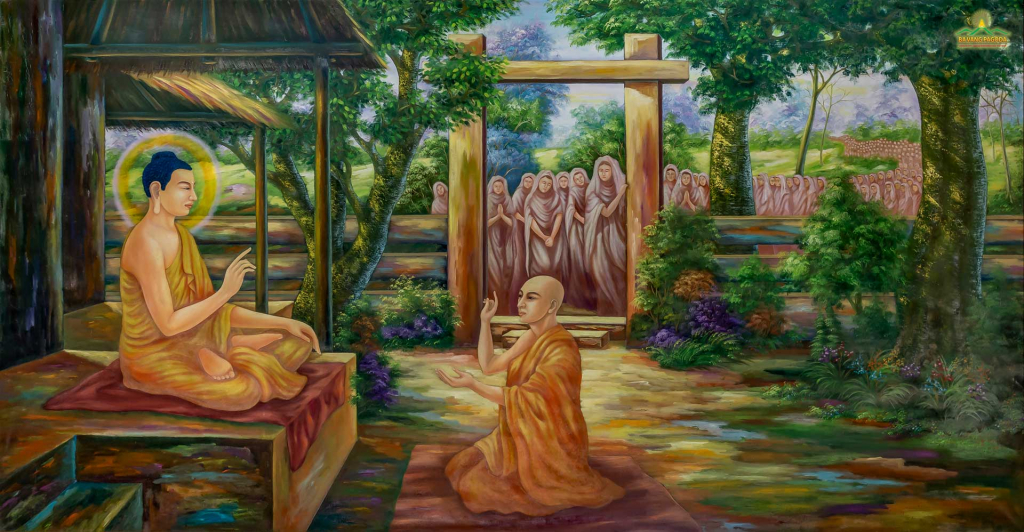 The Buddha was the first who allowed women to be ordained and join His Order. (Photo: Venerable Ananda asked the Buddha to grant women the ordination.)
The Buddha was the first who allowed women to be ordained and join His Order. (Photo: Venerable Ananda asked the Buddha to grant women the ordination.)Thay Thich Truc Thai Minh affirmed: “The Buddha stated that women can also attain the fruits of enlightenment just like men if they practice the Buddha's teachings fully. Just to notice is that a woman cannot become Mara, Devapati (lord of devas) or Buddha.”
The Buddha taught King Pasenadi about the benefits of having a daughter
In the time of the Buddha, King Pasenadi and Queen Mallika gave birth to a daughter. The king was so disappointed because he longed for a son. Yet the Buddha shared such wise words with the king:
“A woman, O lord of the people,
May turn out better than a man:
She may be wise and virtuous,
A devoted wife, revering her mother-in-law.
The son to whom she gives birth
May become a hero, 0 lord of the land.
The son of such a blessed woman
May even rule the realm.”
(Bhikshu Bodhi, 2000, p. 179)
Virtuous women and Bhikshunis in the time of the Buddha
In a sermon, Thay Thich Truc Thai Minh told his disciples about some virtuous women in the time of the Buddha. Among them were Mahaprajapati Gautami (stepmother and the maternal aunt of the Buddha), who was ordained and became a sage Bhikkuni; Yasodhara (wife of Prince Siddhartha), who was ordained and became an Arhat; Bhikshuni Utpalavarna, who was considered to rank first in supernatural powers among female disciples of the Buddha; Bhikshuni Ksema (who had been the wife of King Bimbisara) was also a special one; Bhikkuni Dhammadinna, who was the best female disciple of the Buddha at preaching the Dharma. Besides, there were extremely devout lay disciples like Visakha, Queen Mallika and Queen Samavati.
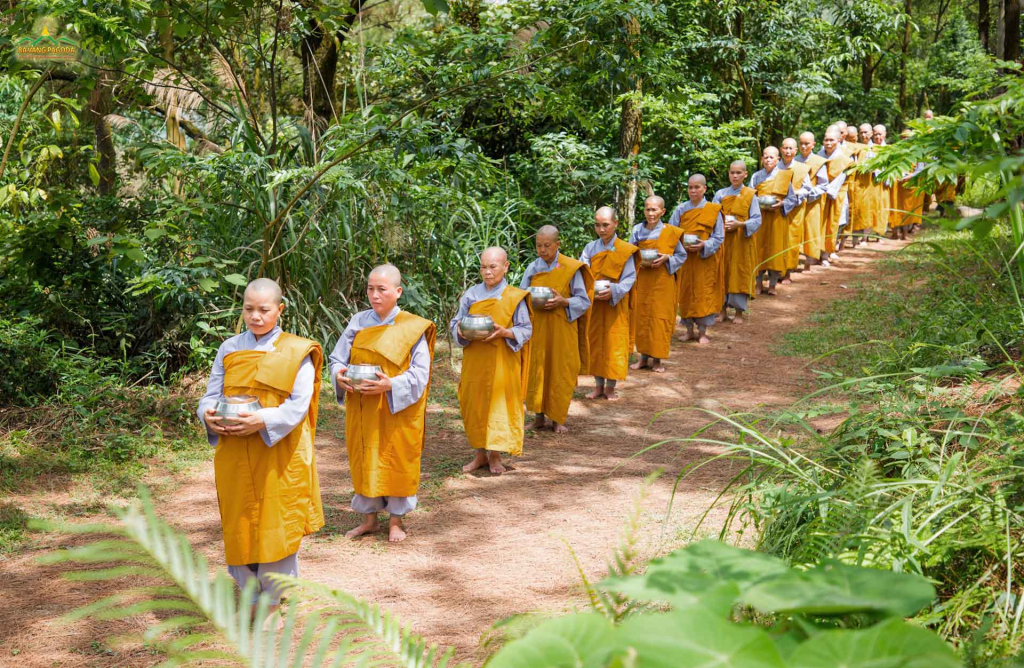 Thay said: "For the Buddha and the Sangha of the Buddha, women had a very important position in the Sangha." (Photo: Nuns of Ba Vang Pagoda, under the guidance of Thay Thich Truc Thai Minh—the Abbot, going on an alms round in the forest.)
Thay said: "For the Buddha and the Sangha of the Buddha, women had a very important position in the Sangha." (Photo: Nuns of Ba Vang Pagoda, under the guidance of Thay Thich Truc Thai Minh—the Abbot, going on an alms round in the forest.)Moreover, Thay Thich Truc Thai Minh said: “As you see, for the Buddha and the Sangha of the Buddha, women had a very important position in the Sangha. The Buddha was the One who could see good qualities of women and the equality.”
Through the Buddha's teachings, we hope that every woman in the world will discover their potential strengths, develop them, and achieve happiness in life.
References
Bhikshu Bodhi (2000): The connected discourses of the Buddha. A translation of the "Samyutta Nikāya". Boston: Wisdom Publications (The Teachings of the Buddha).
Sermon of Thay Thich Truc Thai Minh on 14 May 2018, explanation of Milindapanha, The weakness of women (vi.: Sự tà hạnh của người nữ), in Vietnamese: https://www.youtube.com/watch?v=4-gi4zjASak


